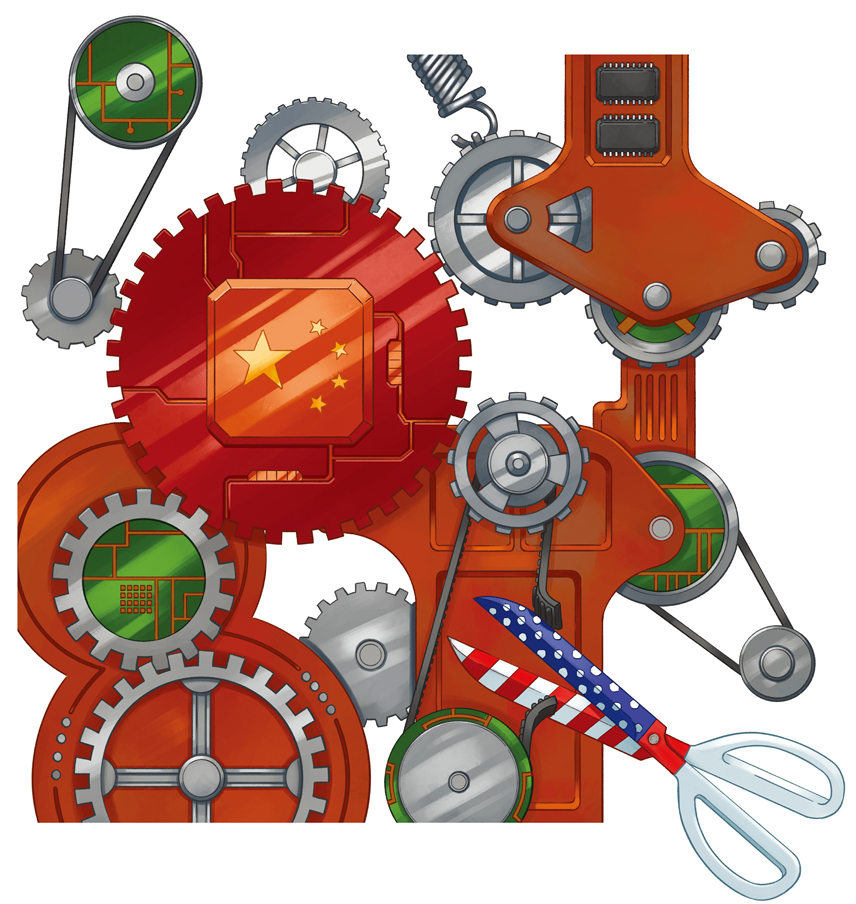The week that was: the Chinese economy clocked 7.5% growth; new home prices still in a tailspin; Shanxi-based Huatong Road & Bridge Group heads for a bond market default; and Alibaba delays its IPO.
China growth picks up steam
The world’s second-largest economy grew 7.5% in the second quarter, slightly faster than the 7.4% rate logged in the first three months of the year, according to China’s official statistics.
To help the Chinese economy gain traction from the slowest growth in years, Beijing has initiated a series of small-scale stimulus measures, which include more spending on infrastructure and loosening credit. While the recovery is evident, some analysts worry that the government-led investment is still playing a key role in the country’s growth model, and that consumption hasn’t risen fast enough.
According to CNBC, fixed asset investment increased by 17.3% year-on-year during the first six months of 2014, outpacing the 12.4% growth in retail sales in June from a year ago. ANZ’s Greater China Chief Economist Li-Gang Liu told CNBC that Beijing now seems to be bound by the 7.5% growth target, which could slow down the country’s reform agenda. Chinese leaders have previously shown tolerance for more flexible growth rates, but Premier Li Keqiang spoke confidently last month that China will achieve its 7.5% expansion target this year and the government will do what’s necessary to make sure it happens.
Liu also expects that the People’s Bank of China would extend the recent targeted reserve requirement ratio (RRR) cuts to the entire banking system.
New home prices continue to fall
Official data released by China’s National Bureau of Statistics shows that new home prices in the 70 cities it tracks fell by 0.47% in June from a month earlier, The Wall Street Journal reported. It’s the second month-to-month fall in about two years, following May’s 0.15% retreat.
Home prices in 55 of the 70 cities fell in June, more than the 35 cities that recorded declines in May. On a year-on-year basis, housing prices were 4.2% higher in June, compared with the 5.6% rise logged in May, according to Reuters’ calculations.
Faced by falling transactions, developers are offering various incentives to spur sales. According to Reuters, China’s third-largest property developer (by sales) Evergrande has joined its peers in offering no-interest down payment loans to homebuyers, who can pay back the loans in three years. Chinese banks usually require at least a 20% to 30% down payment before issuing home mortgages, which is one of the reasons that, analysts say, makes the Chinese real estate market relatively safe.
Some analysts expect that the targeted RRR (Reserve Requirement Ratio) cuts by China’s central bank will continue trickling down to the housing sector and, thus, ease the credit squeeze many smaller developers are in. But cash-strapped firms may not find much luck in the shadow banking system any more. Trust funds that used to invest heavily in the real estate market are now drying up, lending 39% less in the first half of the year than the previous six months, Reuters reported.
China Merchants Securities’ economist Xie Yaxuan told Reuters that “default risk is heightening” because the high returns trust funds offer to investors very much rely on rising home prices.
China’s second bond market default surfaces
Following the coupon payment default by Shanghai Chaori Solar Energy Science and Technology in March, which was China’s first onshore corporate bond default, another Chinese company has found itself in troubled waters.
According to Bloomberg, Huatong Road & Bridge Group, a builder in Shanxi province, said it may miss a RMB 400 million principal payment and RMB 29.2 million in interest (7.3% coupon rate) due July 23. The chairman of the company was removed earlier this month due to alleged illegal activities; and he is now assisting with an official investigation, the company’s statement said, without revealing more details. The ratings of the bond were reduced from AA- to BB+. It’s not clear if the government will finally step in to guarantee the payment.
The possible default highlights the risks in China’s corporate bond market. Standard & Poor’s report in June said that by the end of 2013, Chinese companies borrowed $14.2 trillion, more than the $13.1 trillion borrowed by their US counterparts.
Alibaba delays IPO, hires powerful film chief
The much-anticipated IPO of the Chinese e-commerce giant has been postponed again, said the Financial Times, which quoted sources as saying that the listing will not come until September. Earlier media accounts have claimed that the company will make its NYSE debut by the end of July. In a regulatory filing last Friday, Alibaba valued itself at about $130 billion.
The FT said that Alibaba might be avoiding listing in August because Wall Street is usually on vacation in summer, which means lower transaction volumes and a slower market. With the new plan, Alibaba will not start its roadshow until after the Labor Day weekend in the US.
On a different note, the company is serious about its ambitions for the entertainment industry and is set to produce real shows. According to The Wall Street Journal, Alibaba has hired Zhang Qiang, Vice President of state-owned China Film Group, to head its media production company, in hope of a bigger share in China’s booming entertainment industry. Zhang has resigned from his current company and will officially come onboard with Alibaba in about a month, sources say.
The move comes after Alibaba spent more than $800 million on a 60% stake in ChinaVision Media Group in June, which was then renamed to Alibaba Pictures Group.
China Film Group is the country’s largest film producer and the only company that can legally import foreign films. Zhang has been the executive producer for several popular Chinese films, two of which raised money on Alibaba’s entertainment crowd-funding platform Yu Le Bao, according to the Chinese media.
Chinese companies’ unprecedented legal victory
Chinese companies like Huawei, ZTE and China National Offshore Oil Company have been struggling to get regulatory approvals to enter the US market or make cross-border investments. Citing national securities concerns, the Committee on Foreign Investment in the US, or CFIUS, can shoot down any deals that it wants to, without having to explain why.
But the status quo might change, as a Chinese-owned company won a case against CFIUS on Tuesday, when the US Circuit Court of Appeals for the District of Columbia ruled that CFIUS failed to provide a Chinese-owned company with evidence from which its decision was drawn, according to South China Morning Post.
Ralls Corp, a Delaware-based company owned by two executives of China’s biggest machinery manufacturer Sany, was blocked by the US President Barack Obama from developing wind farm projects in Oregon, which were close to a US naval weapon facility. Ralls later sued President Obama for his veto, but most claims in the case were dismissed because a presidential decision is not subject to judicial review under the US law.
The only part of the case that was heard was whether CFIUS followed due process when making recommendations to President Obama. And by winning the case, CFIUS and the Obama administration might have to provide evidence to show why Ralls’ projects threatens the US national security. The Wall Street Journal said that the administration has two legal options after the ruling: asking the court to rehear the case with all active judges on the bench, or appealing to the Supreme Court directly.

















